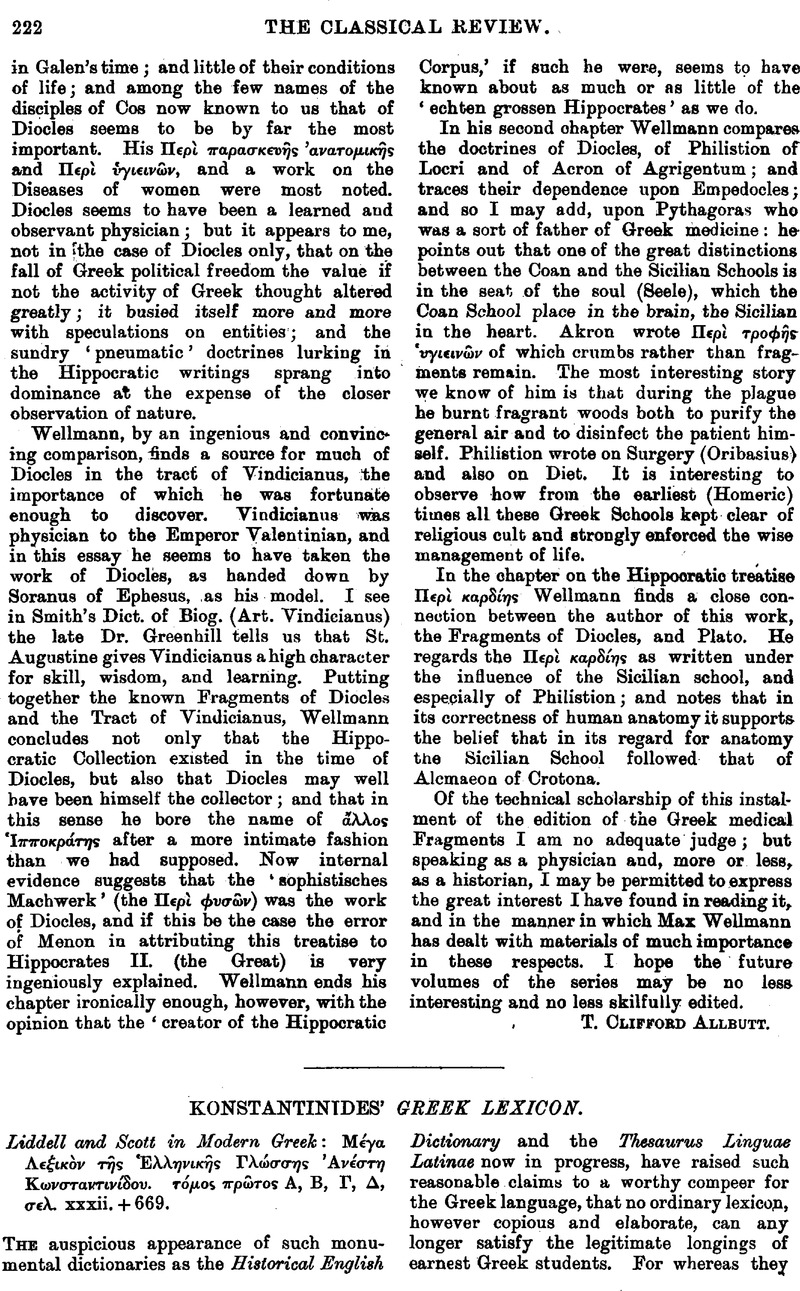Article contents
Konstantinides'Greek Lexicon - Liddell and Scott in Modern Greek: . xxxii. + 669.
Published online by Cambridge University Press: 27 October 2009
Abstract

- Type
- Reviews
- Information
- Copyright
- Copyright © The Classical Association 1902
References
page 223 note 1 Curiously enough the earliest translation and revision of Schneider's Lexicon (1804) was made by Ἄνθιμος Γαζῆς, a most learned Greek monk who issued it at Venice in 1809–12 in three large volumes in quarto. This Λεξικὸν Ἑλληνικὸν is still a mine of valuable and original information, especially with regard to Patristic and Byzantine Greek. As it covers the whole history of the Greek language, it is still highly and justly esteemed in Greece, despite the appearance in recent years of other rival Ἑλληνικλεξικά, e.g. one by Bυζάντις (1852, after the latest Stephanus), another by Σακελλάριος (1898, after, Pape), and an Ἑπίτομον λεξικόν by the present reviewer (1891, after Liddell and Scott).
page 224 note 1 Classical scholars will hear with genuine regret and sympathy that Prof. Kόντας is threatened with total blindness, though his prodigious memory and critical acumen—he is a veritable walking library—enable him still to lecture and pursue in a way his literary studies.
page 225 note 1 L. and S.'s error may be due to a misunderstanding of Passow's definition (s.v.) ‘ohne Einbug.’ But in the passage referred to (Ael. HA. 15, 16) there is question of the garfish: ![]() i.e. having no crook or cavity.
i.e. having no crook or cavity.
- 1
- Cited by


